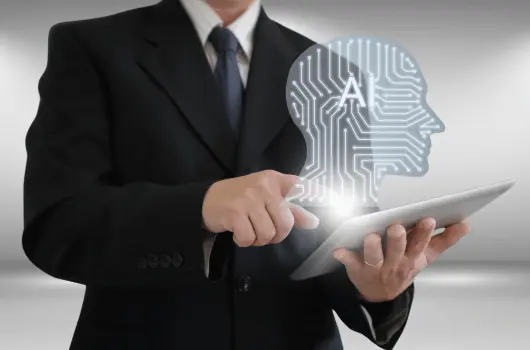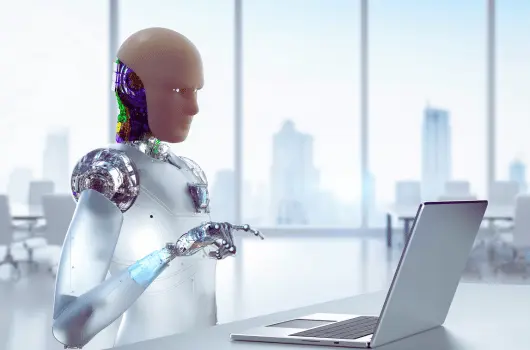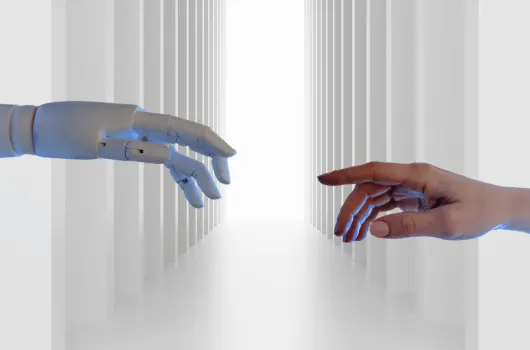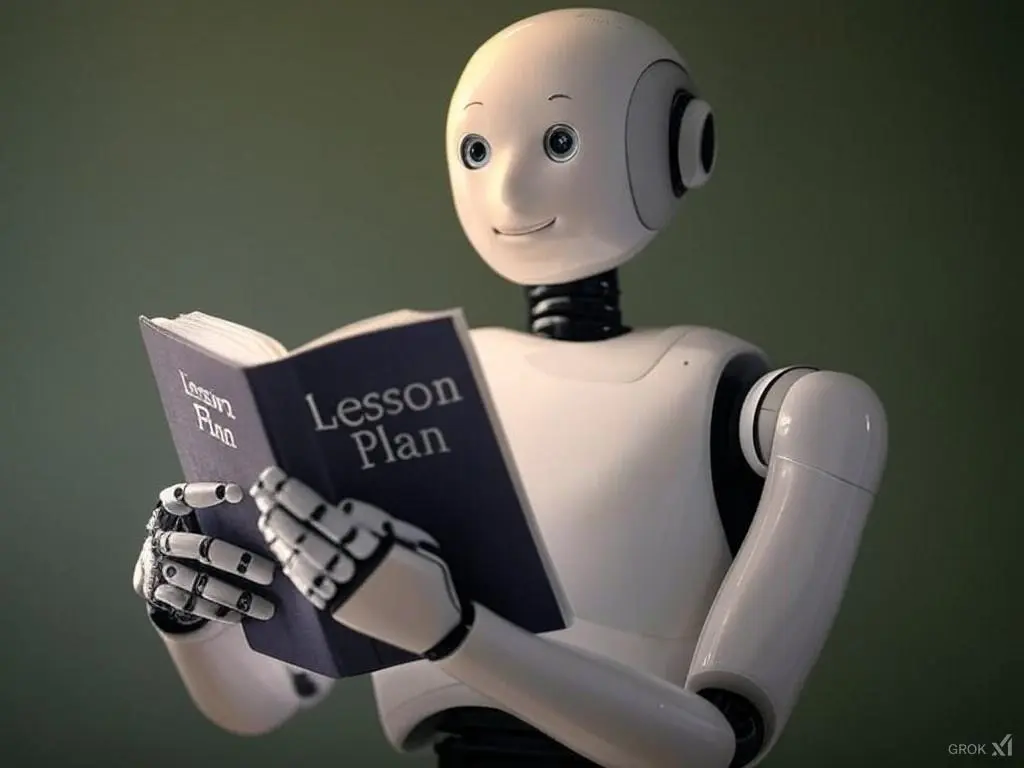
Will AI Replace Tutors? The Future Of Education
Quite recently, Artificial Intelligence (AI) only appeared and took over at such a development speed that big leaps happen daily. A lot of tools appear every day, and most of the educational tools include AI. Tutors and teachers started raising one of the most pressing questions: whether AI will replace us.
There are compelling arguments for both positive and negative answers. Hence, I want to argue both sides and share my own vision regarding this topic.
Yes, AI Could Take Over the Jobs of Tutors

Let’s be honest: many seasonal tutors appear daily to earn some additional income for a short time. They are not in this area to provide quality. Most of them do not even want to learn how to tutor or deep dive into teaching, etc.
“Tutors” like this are easy to replace by AI already today. More difficult is to replace the tutor who takes teaching seriously and who makes a living out of it. The tutor who constantly develops his knowledge and experience stays updated in his area and adapts to changes.
Many tutors are afraid of AI. However, many tutors embrace it, explore its capabilities, and exploit it to their benefit. They are not afraid of AI because they extend their capabilities to its possibilities and get better over time.
The next argument in favor of tutor replacement is pricing. For a broader range of students, private tutoring is a financial burden. Therefore, many students choose a cheaper or more affordable option, which is AI.
Also, AI gives access to education in areas where there is a shortage of qualified tutors. Plus, it is also accessible 24/7 from your device in any part of the world.
Also, AI-powered platforms provide personalized learning support and adapt lessons to individual learning styles. They can instantly analyze student’s strengths and weaknesses, as well as tailor the curriculum accordingly. It can already do many functions the human tutor does but instantly, which keeps learners more engaged. And subsequently, it will be getting better.
In addition, AI can leverage vast amounts of data to offer practical insights. We tutors can do it when having a profound practical experience. For example, AI can track student’s progress over time, predicting when they are likely to struggle and offering preemptive help.
This approach based on data can improve the learning process by identifying learning gaps and trends. And even to recommend the best methods for the student to overcome challenges.
No, AI Won’t Fully Replace Tutors

First, online tutoring offers access to tutor services from any part of the world. And the vast competition of tutors makes it available at almost any time for students. Hence, accessibility to tutoring services is not a big deal of a problem nowadays.
A bit different case is, of course, the pricing. However, even here, a human tutor is in a more disadvantaged position than a student. Many tutors lower their prices to compete with both AI and other tutors living in cheaper countries.
The problem is that by lowering the price, tutors enter the burn-out stage very fast. As your workload increases drastically to maintain the same level of income. And it does not compensate compared to the emotional involvement.
And this is one of the biggest reasons why AI won’t replace us. It is true, that AI excels at processing data and adjusting student needs. However, it cannot replace the emotional intelligence and connection that we bring to the table.
We all agree that imparting knowledge is not everything in education. It also involves mentorship, encouragement, and empathy, all of which are critical in motivating students.
Most probably, you also had an experience like mine to some extent. Or if you are lucky, you haven't. When I was at school, there was this subject called biology. I was very interested in it and very motivated in the beginning to learn it.
But somehow, my schoolteacher put me on her list of “students I don’t care about at all.” And started to give me the same low grade independent of whether me being prepared or not.
At some point in time, my motivation to learn, of course, dropped to the no-return level. And whatever tools my parents bought me to learn biology, they have never really sparked my interest back to be consistent in it.
If my teacher had another approach, most probably, even my career would be different nowadays. Though this example shows how not to do it, the truth is it is the same with AI.
AI may indeed provide an unbiased learning experience. However, it cannot understand students’ emotional struggles, provide reassurance, or adapt its approach based on their moods or mental states effectively.
So, we end up with a careless robotic teacher working to the extent of the human-written code.
Moreover, AI can teach rules and patterns, but it struggles with fostering creativity, critical thinking, and problem-solving skills at a deeper level.
Where patterns can be identified and repeated, like in math or languages, AI may excel when it comes to problem-solving. However, some subjects require nuanced discussions. Just imagine literature or history without interpretation and guidance.
We are better equipped to challenge students’ thought processes, encourage innovative thinking, and adapt lessons based on ongoing discussions.
On top of that, we bring a wealth of personal experience, cultural knowledge, and contextual understanding to our teaching. We can adapt to our students’ cultural backgrounds and provide relevant examples that make the lessons more relatable.
We can also navigate even the slightest complexities like regional references and students’ backgrounds opposite to the AI one-size-fits-all model.
Additionally, learning is often messy and unpredictable. Students ask questions that are sometimes completely outside the scope of the lesson plan, or they need help with issues that fall beyond the academic scope.
Whether it is a spontaneous discussion or a shift in focus, we can handle these moments and use them as learning opportunities for our students. AI, on the other hand, is still a highly structured system and is limited to its programming.
My View On Hybrid Future

In short, I do not envision AI replacing tutors entirely. I see it shaping new tutors where AI is an assistant to our work rather than a replacement.
It could take over our administrative tasks, and track students' progress. Which will allow us to focus on more complex interactions such as discussions, critical thinking exercises, and providing personalized mentorship.
AI could also use data analytics to curate hyper-personalized content for students based on their learning history, preferences, strengths, and weaknesses.
For example, I already use AI to specifically address my student’s learning gaps or struggles with concepts through tailored exercises, and multimedia content.
Several years ago, emerged Virtual Reality (VR) and Augmented Reality (AR) in our lives. Imagine integrating it into teaching with the help of AI. Where your students can learn history by “walking” through historical events or studying biology by virtually dissecting a 3D animal.
You could even guide the AI and, and with its help, create personalized experiences or explanations for your students.
AI can also help you simulate real-world scenarios that help your students practice skills. In fields like medicine or law, your students could practice surgeries or courtroom procedures in lifelike settings. In addition, it could offer live feedback based on their performance.
Or VR language cafes where students can immerse into any environment and even the most shy ones can speak freely through their avatars.
AI can also assist you in designing and customizing lesson plans based on the individual needs of your students. You do not need to spend hours on that, as well as thinking about how you can adapt a standard lesson.
Also, you can use AI to save time when curating teaching resources like videos and articles. It can also suggest the most up-to-date resources for new developments in a particular field.
Often, we may inadvertently reinforce stereotypes, make assumptions, and are unconsciously biased in our teaching approaches. AI could also help us identify them and provide insights on how to make lessons more inclusive.
As education evolves, the role of a tutor does, too. Whether we want it or not, AI will develop, and more tools will appear. And it is a choice of each to embrace it and use it for our benefit or be scared and refuse it.
The former approach is flexibility, and leads to development, and keeping up with innovations. The latter approach led to being replaced by AI and tutor colleagues who were flexible enough to adapt to changes and become better.

Written by Liudmyla M.
Experienced Tutor with over 12 years of teaching both online and offline. Passionate about helping students achieve their goals through personalized and practical methods.

